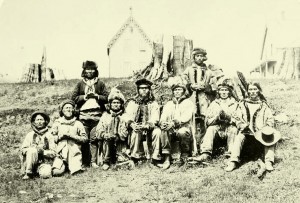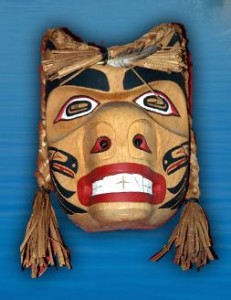There is no doubt that business needs to care about demands and benefits of the first native citizen. The most obvious reason for this statement is that we are now living and working on their land. Therefore, even the managers or politicians could be foreigners, the benefits and demands of the first nation citizen should be one of the main elements in the decision making process.
Canada is a country of enormous immigrations and immigrants in Cnanada are mainly from Asia and Eorope. It is generally recognized that the eating habit of Asian and Europenen is different from that of the traditional Canadian such as Dakelh and tsilhqot. Actually, I think the most important objective of a company is to make money, thus if they can just provide one service they will choose the one with the larger number of customers. The problem for the first native is that the number of immigrants increases dramatically that causes a huge number of companies keen to provide foreigner criticize and service and ignore the demand of them.
Second point is about resources. I want to use an example as Canadian salmon company to illustrate my idea. Canada is well known for large quantity of fresh salmon. Both the first native and immigrants love that, but the number of salmon is limited. If a salmon company keeps fishing, exporting salmon and never stop, that will cause the number of salmon drop sharply and thus will have a serious impact on the life of the first nation. Fortunately, Canadian government formulates some policy to regulate the fishing industry (this is not including the first nations). Another example is about education resource. I think some education orgniazations should provide discount for first nation students.
Business really needs to respect the right and demand of the first nations. In my own perspective this is not only an ethical behaviour but an obligation. People who immigrate to Indian land should not destroy their original living style and culture. Besides, there are large number of constitutions are to protect them. In 1976, although the Indian Act allowed the government to control most aspects of aboriginal life, the Inuit and Métis are not governed by this law. This means the first nations still have many special power such as no regulation to their hunting and fishing activities. In addition, the first nations unions have strong power, if company deprives them of right and make them unsatisfied, they may hold some protest marches and then the government will participate.
In conclusion, although the number of the first nations just occupy a small amount of population in Canada, company still needs to care about their demand.
reference:


